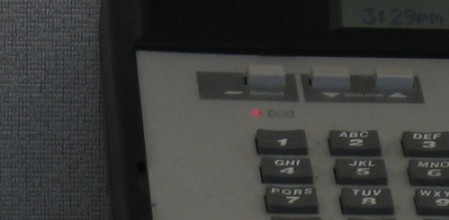When monitors around the world display a “Blue Screen of Death” and you know it’s probably your fault, it’s got to be a terrible, horrible, no good, very bad day at work. That’s likely the situation inside CrowdStrike this weekend, as engineers at the cybersecurity provider struggle to recover from an update rollout that went very, very badly indeed. The rollout, which affected enterprise-level Windows 10 and 11 hosts running their flagship Falcon Sensor product, resulted in machines going into a boot loop or just dropping into restore mode, leaving hapless millions to stare at the dreaded BSOD screen on everything from POS terminals to transit ticketing systems.
fema4 Articles
Hackaday Links: September 3, 2023
Right-to-repair has been a hot-button topic lately, with everyone from consumers to farmers pretty much united behind the idea that owning an item should come with a plausible path to getting it fixed if it breaks, or more specifically, that you shouldn’t be subject to prosecution for trying to repair your widget. Not everyone likes right-to-repair, of course — plenty of big corporations want to keep you from getting up close and personal with their intellectual property. Strangely enough, their ranks are now apparently joined by the Church of Scientology, who through a media outfit in charge of the accumulated works of Church founder L. Ron Hubbard are arguing against exemptions to the Digital Millennium Copyright Act (DMCA) that make self-repair possible for certain classes of devices. They apparently want the exemption amended to not allow self-repair of any “software-powered devices that can only be purchased by someone with particular qualifications or training or that use software ‘governed by a license agreement negotiated and executed’ before purchase.
Radio Apocalypse: Hardening AM Radio Against Disasters
If you’ve been car shopping lately, or even if you’ve just been paying attention to the news, you’ll probably be at least somewhat familiar with the kerfuffle over AM radio. The idea is that in these days of podcasts and streaming music, plain-old amplitude modulated radio is becoming increasingly irrelevant as a medium of mass communication, to the point that automakers are dropping support for it from their infotainment systems.
The threat of federal legislation seems to have tapped the brakes on the anti-AM bandwagon, at least for now. One can debate the pros and cons, but the most interesting tidbit to fall out of this whole thing is one of the strongest arguments for keeping the ability to receive AM in cars: emergency communications. It turns out that about 75 stations, most of them in the AM band, cover about 90% of the US population. This makes AM such a vital tool during times of emergency that the federal government has embarked on a serious program to ensure its survivability in the face of disaster.
Continue reading “Radio Apocalypse: Hardening AM Radio Against Disasters”
FEMA Phone System Hacked

Over the weekend, a hacker broke into FEMA’s new PBX voicemail system, made over 400 overseas phone calls to Asia and the Middle East, and ran up a $12,000 bill. The low tech hack took advantage of a “hole” that was not covered when a contractor upgraded the voicemail system. FEMA is currently conducting its own internal investigation, but FEMA spokesman [Tom Olshanski] did not have any information about the contractor responsible or what specific hole was the cause of the breach. Ironically, Homeland Security, of which FEMA is a part, had issued a warning in 2003 about the very same vulnerability.
[photo: silas216]












